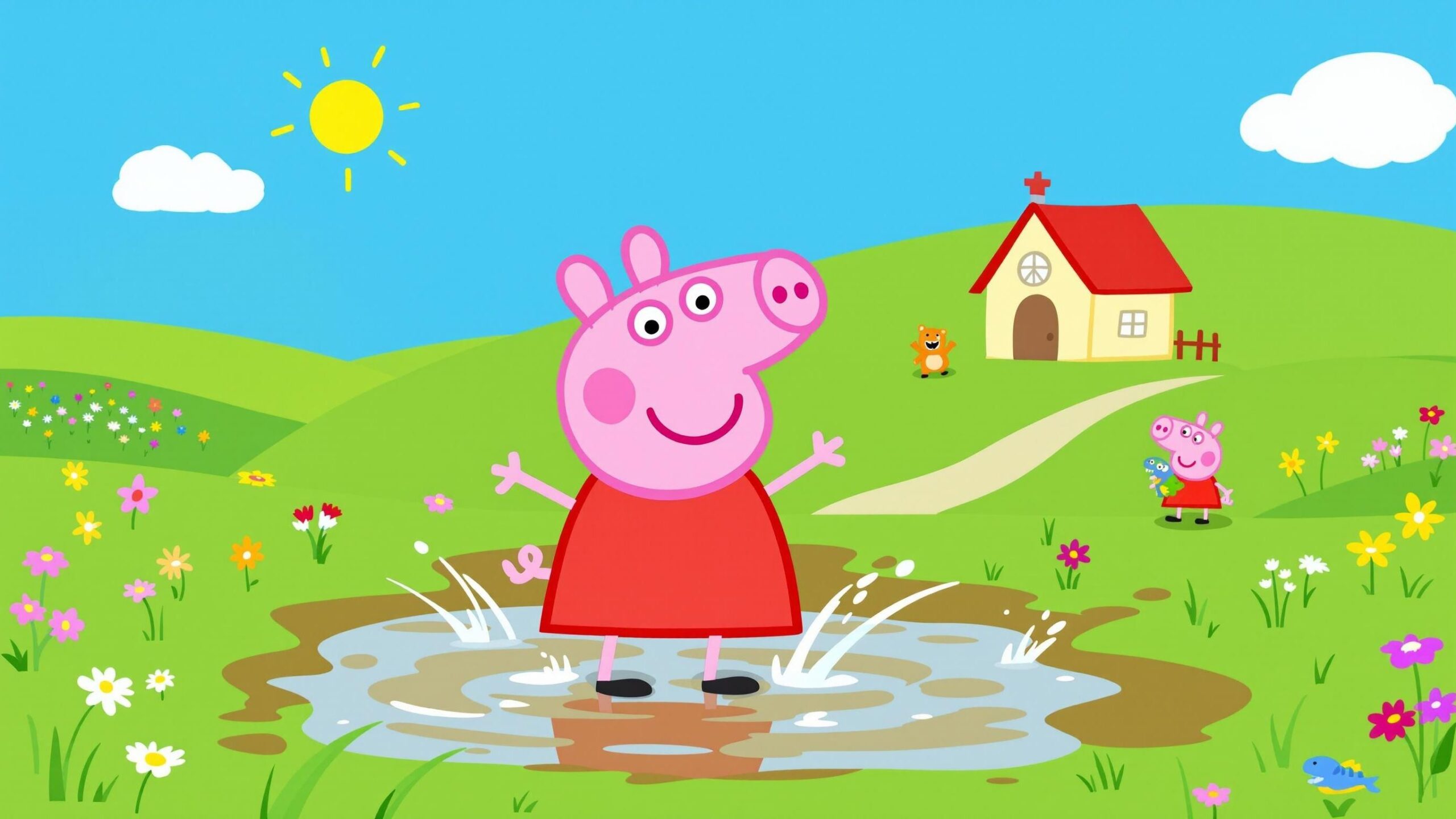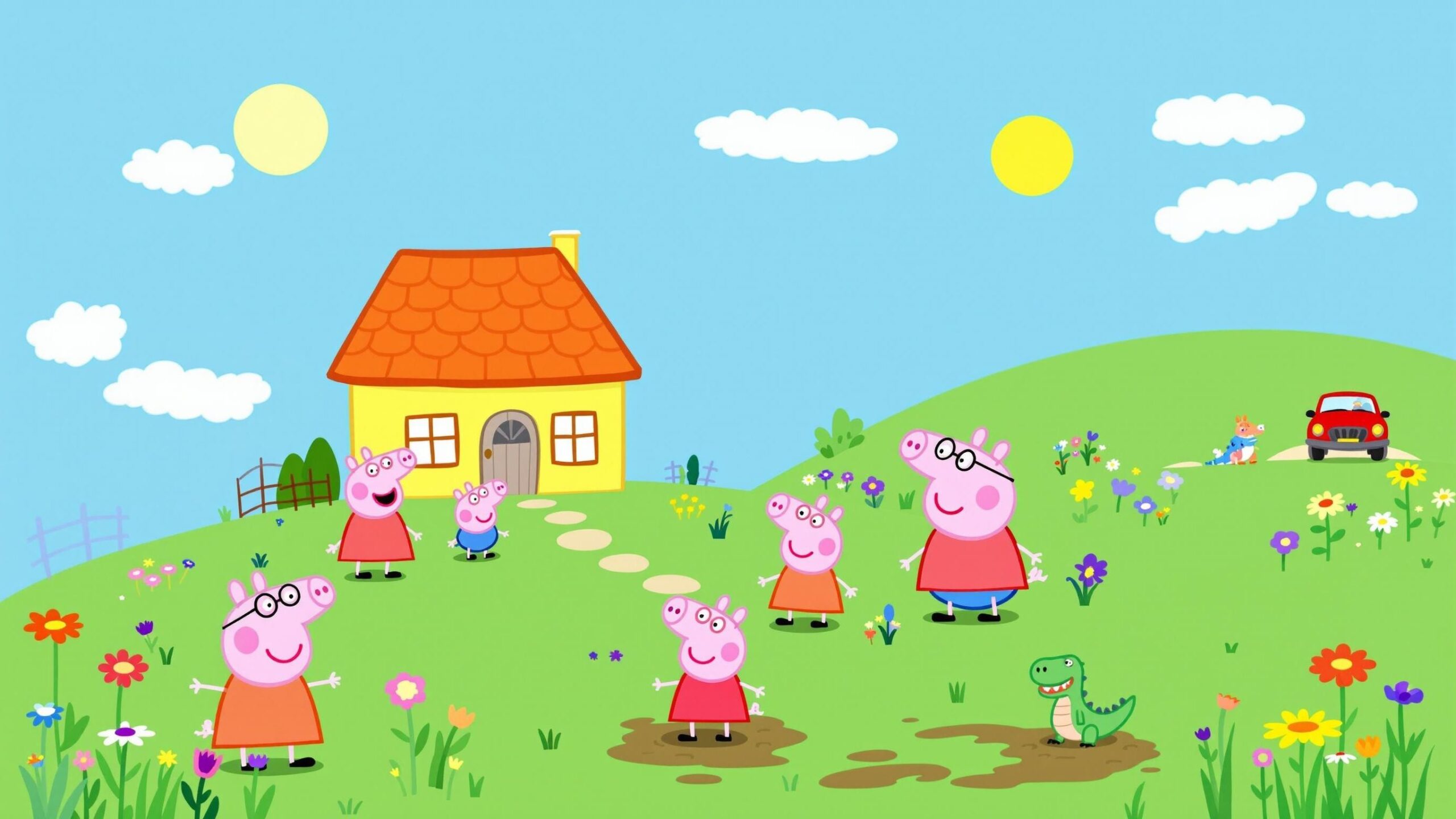Peppa Pig might seem like an unlikely philosopher. She’s cheeky, opinionated, and rarely seen without a splash of mud on her wellies. But this pink, pint-sized piglet has managed to take the world by storm—not only entertaining millions of preschoolers, but also embedding herself into the routines of families across the globe. Through her bright, colorful world filled with animal friends, giggles, and charming British wit, Peppa Pig offers far more than just entertainment. Behind the simple animation and toddler-friendly storylines lies a treasure trove of surprisingly profound life lessons that apply to kids and grown-ups alike. Her world is a miniature stage where friendship, failure, curiosity, and kindness play out in gentle and memorable ways. Whether she’s jumping in muddy puddles or navigating a birthday party crisis, Peppa constantly reminds us of the joys and challenges of everyday life. Here are ten life lessons we can all learn from Peppa Pig—lessons that reveal how even the smallest characters can make a big impact.
1. It’s Okay to Make Mistakes (And Laugh About Them)
In Peppa Pig, things rarely go according to plan—and that’s part of the charm. From baking mishaps to misunderstood instructions, the characters frequently mess up. But unlike other shows that gloss over mistakes or punish characters harshly, Peppa Pig treats these stumbles as opportunities to learn and laugh. When Daddy Pig gets lost (again) while reading a map or when George loses his favorite toy Mr. Dinosaur, no one reacts with panic or anger. Instead, the characters work through their problems together, often with a giggle and a lesson. For children, this modeling is critical. It helps them understand that getting something wrong isn’t shameful—it’s just part of being human (or pig, or rabbit, or zebra). Peppa herself is no stranger to blunders, and she’s often the first to laugh at her own missteps. In doing so, the show teaches resilience through humor. Adults watching can learn from this too: perfection is overrated, and sometimes a well-timed snort of laughter is the best way to move forward.
2. Confidence Isn’t About Being the Best—It’s About Being Yourself
Peppa may be little, but she is absolutely bursting with confidence. Whether she’s putting on a pretend show for her family, jumping into new games with friends, or declaring herself the best at something (even when she isn’t), she radiates self-assurance. She isn’t afraid to be the center of attention, to voice her opinions, or to ask questions—qualities that, in real life, children are often encouraged to tame. What makes Peppa’s confidence especially powerful is that it’s not tied to winning or proving anything. She’s not flawless or even particularly humble, but she owns her identity without needing validation. She knows what she likes, she says what she thinks, and she doesn’t apologize for who she is. The takeaway is clear: confidence doesn’t require trophies or perfect grades. It starts with self-acceptance. Children watching Peppa get a steady dose of encouragement to believe in their worth—not because they’re the best, but because they’re them.
3. The Greatest Joys Are Found in Simple Things
In a world obsessed with gadgets, glitter, and overstimulation, Peppa Pig feels refreshingly grounded. The show finds magic in mundane moments: jumping in puddles, baking pancakes, going to the supermarket, having a picnic in the backyard. There are no superpowers, epic quests, or outlandish adventures. Instead, Peppa and her family savor the pleasures of everyday life. Watching this unfold episode after episode reminds us that joy doesn’t need to be manufactured—it just needs to be noticed. Children are naturally inclined toward wonder, and Peppa Pig encourages that sense of appreciation. When Peppa gets excited about something as simple as spotting ducks at a pond or helping Granny Pig in the garden, she models a mindset of presence and gratitude. Grown-ups watching alongside might also be reminded that slowing down, savoring a moment, and stepping away from screens can be deeply fulfilling. Sometimes the best moments happen when your boots are muddy and your heart is light.
4. Family Might Be Embarrassing, But It’s Everything
If there’s one constant in Peppa’s world, it’s her tight-knit (and delightfully goofy) family. Mummy Pig is the ever-patient multitasker, Daddy Pig is the lovable goof who gets lost even with a map, and George is the sweet younger brother whose vocabulary rarely extends beyond “Dinosaur!” Together, they make mistakes, laugh at each other, support one another, and build a sense of stability that children crave. Even the grandparents, Granny and Grandpa Pig, are regular fixtures—offering both comic relief and moments of tenderness. What Peppa Pig teaches here is that family doesn’t have to be perfect to be powerful. There’s value in shared meals, silly traditions, and even the occasional grumble. Peppa sometimes rolls her eyes at Daddy Pig’s clumsiness, and George occasionally gets on her nerves, but when it matters most, she never hesitates to love them fiercely. For viewers, especially young ones, this consistent display of warmth reinforces the importance of connection. For parents, it’s a reminder that the little things—story time, car rides, messy breakfasts—are what build lasting bonds.
5. Curiosity Is a Gift Worth Nurturing
Peppa and George ask questions. Lots of them. Sometimes the answers are silly, other times they’re surprisingly profound. But one thing the show does beautifully is never belittle curiosity. Whether they’re wondering where recycling goes, how telescopes work, or what happens at the dentist, their inquisitiveness is met with enthusiasm. Adults in the show take the time to explain, demonstrate, and guide—showing that curiosity is a trait to be encouraged, not dismissed. This lesson is as important for adults as it is for children. In a world that often values productivity over wonder, Peppa Pig reminds us that asking questions—especially the “why” and “how” kind—is how learning begins. It’s not just about acquiring facts; it’s about staying open to the world around us. Encouraging this attitude at an early age can foster lifelong learners who see knowledge not as a chore, but as an adventure.
6. Friendship Takes Work, But It’s Worth It
Peppa has a large circle of friends, and with it comes a spectrum of personalities. Suzy Sheep is her best friend, but their relationship is anything but smooth. They argue, they compete, and occasionally they say hurtful things. But the beauty of their friendship lies in their willingness to move past disagreements. They apologize. They laugh. They try again. The same goes for Peppa’s interactions with Rebecca Rabbit, Pedro Pony, and others—they experience conflict, but they always come back to kindness. The show gently illustrates that friendships aren’t perfect fairy tales. They require patience, communication, and forgiveness. For children, these lessons are crucial as they begin to form relationships outside the home. Peppa doesn’t teach viewers to avoid conflict; she teaches them how to navigate it. And for parents watching along, it offers conversation starters about empathy, boundaries, and the messiness of human connection.
7. Laughing at Yourself Builds Strength
If there’s one sound you can expect to hear in almost every episode of Peppa Pig, it’s laughter—often at the expense of Daddy Pig’s belly or someone slipping in a puddle. But what’s remarkable is how often that laughter comes from the characters themselves. They aren’t humiliated. They’re amused. Peppa giggles when she falls. Daddy Pig chuckles when he messes up a project. The atmosphere is one of lighthearted self-awareness. This openness to silliness builds emotional resilience. Children learn that it’s okay to laugh when things go wrong. That imperfection isn’t shameful—it’s part of life. It makes mistakes less scary, more manageable, and ultimately more human. For adults, this lesson might be even more necessary. In a society that often prizes control and composure, Peppa Pig whispers an invitation to loosen up and laugh at the chaos. Life’s too short to take yourself too seriously—especially when there’s a muddy puddle nearby.
8. Everyone Deserves a Place at the Table
Peppa Pig creates a world where everyone matters. Each character, regardless of species or quirks, is included in the story. Mr. Zebra delivers the mail. Miss Rabbit works everywhere (and is never overwhelmed). Madame Gazelle guides her students with patience. There’s a sense of community that’s wonderfully inclusive—no one is left behind or seen as less important. By portraying such a wide variety of characters with different roles, temperaments, and talents, the show teaches young viewers to value diversity. Everyone has something to contribute. Everyone deserves kindness. This lesson lands quietly but powerfully with viewers of all ages. In Peppa’s world, the mailman, the dentist, the teacher, and the gardener all get screen time—and more importantly, respect. That’s a message worth carrying into the real world.
9. Balance Pride with Humility
Peppa often boasts. She claims to be the best at jumping in puddles, drawing, and even ice skating—even when she’s not. This boastful streak is both humorous and realistic; children often test the boundaries of pride. But what makes these moments meaningful is how they’re handled. When Peppa’s overconfidence leads to trouble, she’s gently corrected. Her friends point it out. Sometimes she realizes it herself and tones it down. The show doesn’t shame Peppa for being proud—it shows how to temper that pride with humility. She learns to say “well done” to others, to cheer for friends, and to step back when needed. For kids developing self-esteem, this balance is key. For adults, it’s a reminder that confidence and humility aren’t opposites—they’re partners in healthy self-worth.
10. Laughter Can Heal Just About Anything
Almost every episode of Peppa Pig ends the same way: with laughter. It’s a consistent, comforting rhythm—no matter what the episode’s conflict or lesson, it all wraps up with a joyful, shared giggle. This isn’t just comedic timing. It’s a philosophy. The show suggests that laughter is a release, a reset button, and a way to reconnect after confusion or conflict. That message resonates far beyond childhood. In families, friendships, and even workspaces, laughter can break tension, repair miscommunication, and foster unity. Peppa’s world might be full of snorts and giggles, but those sounds carry deeper meaning. They are the soundtrack of connection, resilience, and joy.
The Philosophy of Pigs and Puddles
Peppa Pig may wear a red dress and speak in a singsong voice, but don’t let that fool you. Underneath the giggles and animated simplicity lies a surprisingly thoughtful show about living well, being kind, staying curious, and celebrating who you are. It doesn’t preach, it plays. It doesn’t lecture, it laughs. And in doing so, it teaches. For children, these lessons are stepping stones. For adults, they’re reminders. And for all of us, Peppa Pig is proof that even the most ordinary moments—spilled cereal, rainy days, sibling squabbles—can hold extraordinary meaning. Sometimes the wisest teachers come in muddy boots.




